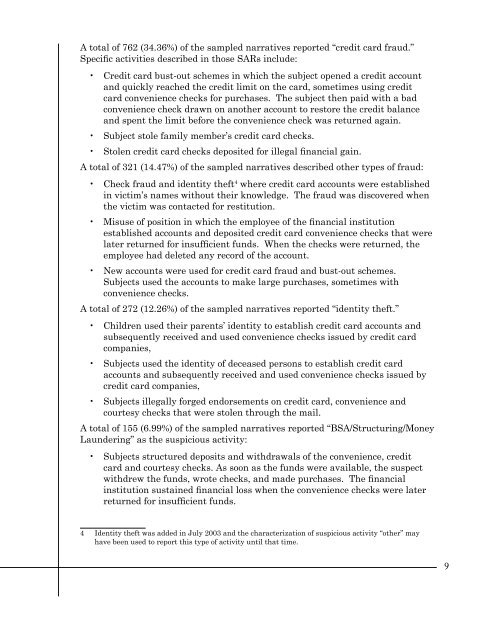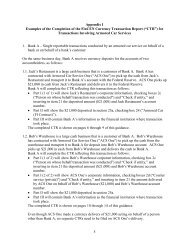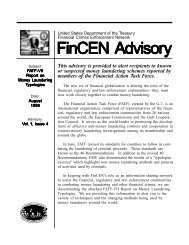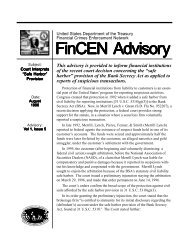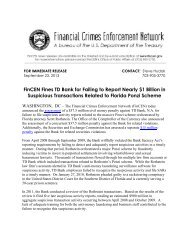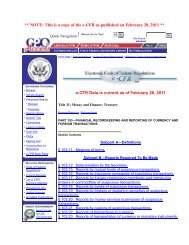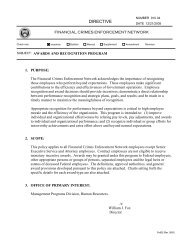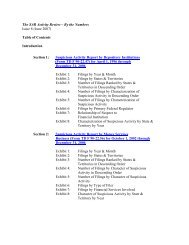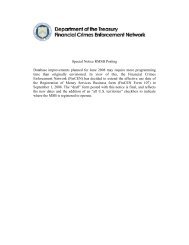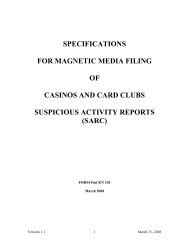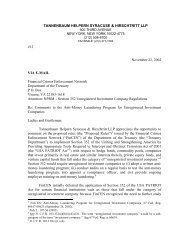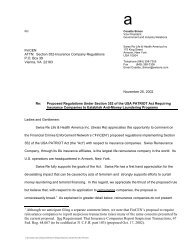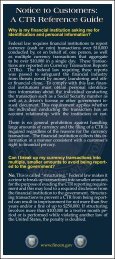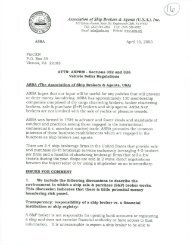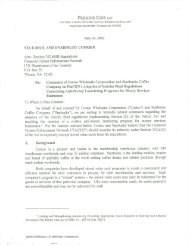The SAR Activity Review Issue 12 - FinCEN
The SAR Activity Review Issue 12 - FinCEN
The SAR Activity Review Issue 12 - FinCEN
You also want an ePaper? Increase the reach of your titles
YUMPU automatically turns print PDFs into web optimized ePapers that Google loves.
A total of 762 (34.36%) of the sampled narratives reported “credit card fraud.”<br />
Specific activities described in those <strong>SAR</strong>s include:<br />
• Credit card bust-out schemes in which the subject opened a credit account<br />
and quickly reached the credit limit on the card, sometimes using credit<br />
card convenience checks for purchases. <strong>The</strong> subject then paid with a bad<br />
convenience check drawn on another account to restore the credit balance<br />
and spent the limit before the convenience check was returned again.<br />
• Subject stole family member’s credit card checks.<br />
• Stolen credit card checks deposited for illegal financial gain.<br />
A total of 321 (14.47%) of the sampled narratives described other types of fraud:<br />
• Check fraud and identity theft 4 where credit card accounts were established<br />
in victim’s names without their knowledge. <strong>The</strong> fraud was discovered when<br />
the victim was contacted for restitution.<br />
• Misuse of position in which the employee of the financial institution<br />
established accounts and deposited credit card convenience checks that were<br />
later returned for insufficient funds. When the checks were returned, the<br />
employee had deleted any record of the account.<br />
• New accounts were used for credit card fraud and bust-out schemes.<br />
Subjects used the accounts to make large purchases, sometimes with<br />
convenience checks.<br />
A total of 272 (<strong>12</strong>.26%) of the sampled narratives reported “identity theft.”<br />
• Children used their parents’ identity to establish credit card accounts and<br />
subsequently received and used convenience checks issued by credit card<br />
companies,<br />
• Subjects used the identity of deceased persons to establish credit card<br />
accounts and subsequently received and used convenience checks issued by<br />
credit card companies,<br />
• Subjects illegally forged endorsements on credit card, convenience and<br />
courtesy checks that were stolen through the mail.<br />
A total of 155 (6.99%) of the sampled narratives reported “BSA/Structuring/Money<br />
Laundering” as the suspicious activity:<br />
• Subjects structured deposits and withdrawals of the convenience, credit<br />
card and courtesy checks. As soon as the funds were available, the suspect<br />
withdrew the funds, wrote checks, and made purchases. <strong>The</strong> financial<br />
institution sustained financial loss when the convenience checks were later<br />
returned for insufficient funds.<br />
4 Identity theft was added in July 2003 and the characterization of suspicious activity “other” may<br />
have been used to report this type of activity until that time.


